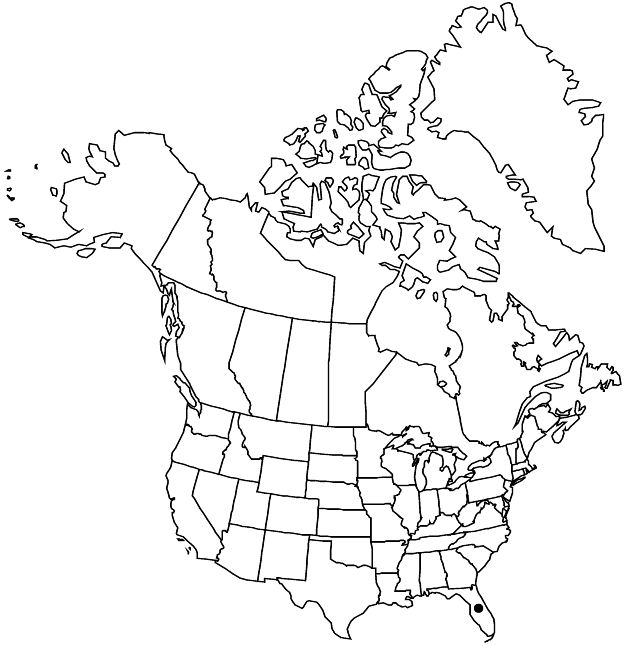Ayenia euphrasiifolia
Cat. Pl. Cub., 29. 1866.
Subshrubs, decumbent to ascending, 0.1–0.4 m. Stems hairy, hairs mostly simple, often retrorse, sometimes also fasciculate and/or stellate. Leaves: petiole (0.1–)0.2–0.5 cm; blade orbiculate to ovate, unlobed, 0.4–1.4 × 0.1–0.7 bifurcate, and fasciculate; petal claws 2–3 mm, lamina rhombic to ± triangular, 1 × 1 mm, base attenuate on claw, margins entire, apex notched, surfaces slightly hairy abaxially, hairs minute, simple, or glandlike, abaxial appendage cylindric to ± clavate, 0.5 mm; androgynophore (1–)2.2–3 mm; stamen filaments present; stigmas exserted. Capsules oblate to subspheric, 4–5 × 4–5 mm, sparingly stellate-pubescent, prickles 0.3–0.5 mm. Seeds 2 mm, densely tuberculate.
Phenology: Flowering and fruiting year-round.
Habitat: Marl over limestone, pinelands, sandy scrub, rocky flats, waste places
Elevation: 0–10 m
Distribution

Fla., West Indies (Bahamas, Cuba).
Discussion
In Florida, Ayenia euphrasiifolia is found in the Florida Keys, south and east of Lake Okeechobee, and near Tampa Bay on the mainland.
Three subspecies, two of them endemic, are recognized in Cuba but are not recognized here; they are based on rather weak morphological characters (habit, vestiture, and
leaf texture) ostensibly correlated with vegetation type and soil substrate. If subspecies are accepted, plants in the flora area are subsp. euphrasiifolia.
Selected References
None.